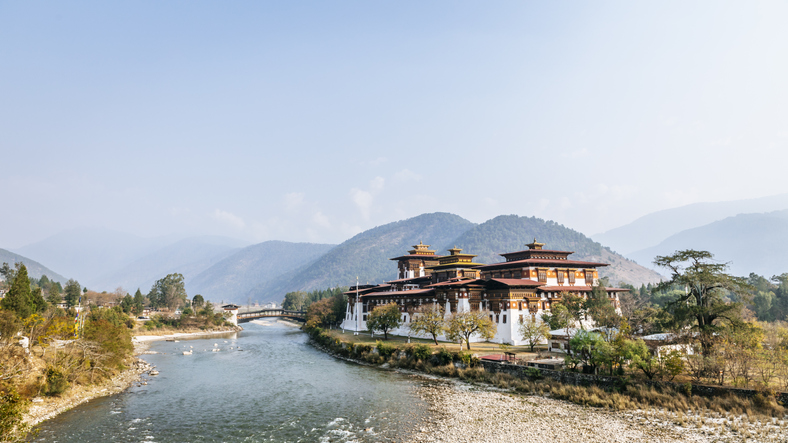‘Country of happiness’, Bhutan imposes the world’s highest tourist tax: $200 per person
3 min read
As a way to organize and manage the resumption of tourism, two years after the pandemic, Bhutan, a Buddhist kingdom in the eastern Himalayas, will impose a “sustainable development fee” from foreign visitors. And it’s pretty salty: $200 per person per day. The honor will go into effect on September 23, when the country’s borders reopen.
The news was announced by Tandy Dorje, Minister and Chairman of the Tourism Board of Bhutan. The price until then was $65. According to the Financial Times, the new price tag will be the most expensive in the world.
The same procedure, for the introduction of the tourism tax, is imposed in other places around the world such as Venice, which will levy a tax of between 3 and 10 euros per day per tourist, starting in January; And in Fernando de Noronha, in Pernambuco, where tourists charge R$87.71 per day.
According to the local government’s announcement, the tourism sector will undergo a renewal process focusing on three areas: infrastructure and services, tourist travel experiences, and environmental impact measures. The country is relatively isolated: the first tourist was allowed in in 1974, and the country did not have television until 1999.
“Covid-19 has allowed us to redefine how to better structure and operate the sector so that it benefits Bhutan not only economically but also socially, while keeping carbon emissions low,” Dorje said. “In the long term, our goal is to create high-value experiences for visitors and high-paying professional jobs for our citizens.”
In the official statement, the government explained that the $200 fee will be used to establish activities that promote tourism and build a more sustainable sector, such as offsetting carbon emissions and qualifying workers in the region.
“Among the many changes are new regulations for service providers, including hotels, guides, tour operators and drivers, who will soon go through an accreditation process before they can work in tourism. Employees will be required to participate in onboarding and rehabilitation programs, where necessary, to increase the level of service.”
the country of happiness
Bhutan is known as the “Country of Happiness” because it has implemented an index called “GNI” (Gross National Happiness) or “GNH” (Gross National Happiness). The government measures the happiness of the citizens through a questionnaire which is conducted with the local census which takes into consideration aspects of daily life of the residents.
In this document, the government evaluates four main pillars and nine areas, which include health, education and governance, as well as psychological well-being, time use, environmental diversity, and standard of living, among others.
In terms of tourism, the area is known for its natural beauty, as well as cultural festivals with music and dances and an appreciation of local culture. One of the most famous is the Thimphu Festival, which takes place in October and attracts tourists from all over the world.

Can a higher rate affect recovery?
Despite the government’s plan, some tour operators have criticized the measure as they believe the high cost of fees threatens to slow the sector’s recovery.
Global travel company World Expeditions told the Financial Times that the move would raise the price of one of its most popular flights: the 27-day snowman hike (“snow trip”) From 5,890 euros to nearly 9,000 euros.
“Raising the price of this hike by 50% would have a significant impact on the future of the tourism industry in Bhutan. Two years after Covid, Gordon Steer, the company’s UK director, told the newspaper, this move makes us very concerned about the impact on the livelihoods of our colleagues in Bhutan.
It is important to note that tourism in the country was already heavily censored. Prior to the price increase, travelers from other countries (except India, Bangladesh and the Maldives) had to book private guided tour packages rather than travel alone.
The minimum daily rate for the package was between $200 and $290 per night. Of this amount, $65 was the government’s tourism tax.
With this announcement, tourists are now more flexible, with the option to book hotels and guides outside of the closed tour package.
The government indicated that with the change, Indian tourists will pay the new sustainable development tax, but at a reduced level: just $15.
Related

“Devoted food specialist. General alcohol fanatic. Amateur explorer. Infuriatingly humble social media scholar. Analyst.”




